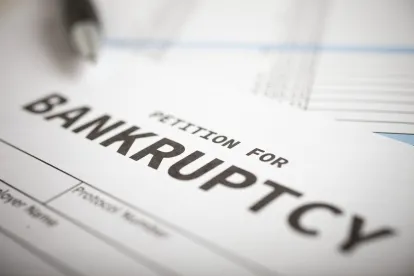Earlier this year, PG&E Corporation and its utility subsidiary, Pacific Gas & Electric Company (PG&E), filed the largest utility bankruptcy in U.S. history, and the sixth-largest corporate bankruptcy ever. As we previously noted, a crucial issue, in this case, was whether the U.S. Bankruptcy Court for the Northern District of California alone will have exclusive jurisdiction to approve any PG&E rejection of long-term power purchase agreements (PPA), or whether the Federal Energy Regulatory Commission (FERC) must also approve such rejection.
On June 7, 2019, the bankruptcy court ruled that it has exclusive jurisdiction to determine any PPA rejection and that FERC has no jurisdiction over the matter. While the Federal Power Act (FPA) grants FERC exclusive jurisdiction over the rates, terms and conditions of such contracts – which FERC largely relied upon in asserting its right to concurrent jurisdiction – the bankruptcy court found that nothing in the FPA or the U.S. Bankruptcy Code grants FERC concurrent jurisdiction with the bankruptcy court to determine PPA rejections. The bankruptcy court further found that the bankruptcy code is the proper and only authority to apply, and not any aspect of the FPA.
Potentially noteworthy in the bankruptcy court’s decision was its pronouncement that it would adopt a more rigorous standard promulgated by the U.S. Court of Appeals for the Fifth Circuit beyond the usual standard of the debtor’s business judgment in determining PPA rejections. The bankruptcy court stated that if it determines that consideration of a PPA rejection implicates public policy interests as well as reorganizational goals, those interests could be considered. In so doing, the bankruptcy court made clear to all parties that it very well might consider anything it deems to be “public policy interests” in addition to what the debtor’s “business judgment” is in ruling on PPA rejections.
While this is a more rigorous standard than normal for a contract rejection in bankruptcy, it is still arguably lower than the FPA standard which prohibits FERC from modifying contractual rates of PPAs unless the rate “seriously harms the public interest.”
The bankruptcy court’s decision also rather strongly rebuked FERC’s issuing of its own decision before PG&E’s bankruptcy filing in which FERC asserted that it had concurrent jurisdiction with the bankruptcy court in determining PPA rejections. The bankruptcy court found that FERC acted outside of its statutory authority in issuing the decision, the decision had “no impact on anyone,” the effect of this FERC decision “guts and renders meaningless the bankruptcy court’s responsibilities in this area of the law” and, “for this reason, FERC must be stopped and the division and balance of power and authority of the two branches of government restored.”
The bankruptcy court stated it will certify its decision for direct appeal to the U.S. Court of Appeals for the Ninth Circuit. Pending any such appeal, one impact of this decision is that PG&E will not be required to expend additional time and resources seeking FERC approval of any PPA rejections in addition to bankruptcy court approval. Another impact is that PG&E and other stakeholders have been put on notice that the bankruptcy court may consider public policy interests in addition to the debtor’s business judgment in ruling on any PPA rejection.
There is still a great deal of potential uncertainty as to whether PG&E may be successful in rejecting any of its significantly above-market PPAs, and PPA counterparties should consider engaging as active participants to preserve and enforce their rights so as to maximize the value of their PPAs and ultimate monetary recovery.






 />i
/>i

